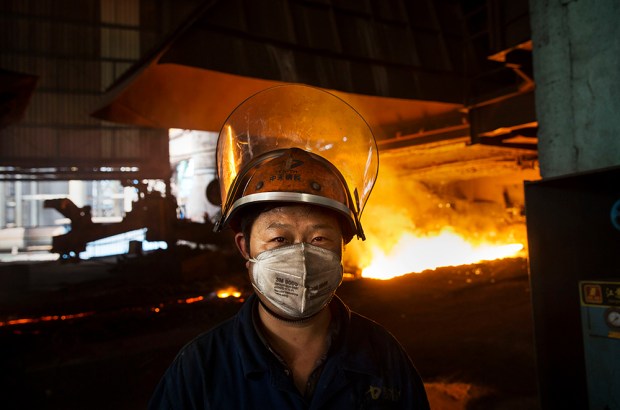My Spectator Australia colleagues Ramesh Thakur and James Allan have written in these pages about the perils of an unelected judiciary that seeks to impose its self-righteous progressivism on government and public policy, and how dangerous that is for democracy.
As Allan wrote regarding the High Court’s recent decision in the Yunupingu case, ‘in which our top judges overturned a half-century old precedent that had been affirmed and affirmed and affirmed, the way they overturned Al-Kateb last year to make dealing with illegal immigrants brutally difficult, however dangerous they might be’. This follows on from the Love case that the good professor declared was basically the worst-reasoned case he had ever read.
If you think Australia’s judiciary is activist, Italian judges, la magistratura, are so left-wing they are called toghe rosse (red gowns). In Italy, judges are a separate profession from lawyers. They investigate, prosecute and adjudicate. Considered an untouchable caste, they make no effort to hide their left-wing sympathies. So much so that, in my view, the US Democrats copied the Italian judges’ playbook in their lawfare against Donald Trump. Let me explain.
Let’s go back some thirty-three years to 1992. That year the tangentopoli (bribe city) scandal rocked Italy’s political system to the core. The investigation run by the judges at the time became known as mani pulite – clean hands – and it engulfed all the major political parties at the time except one, the Italian Communist party, even though for years it had a stench of illegal funding from the old Soviet Union surrounding it.
Enter Silvio Berlusconi, who saw the danger that communism would fill the vacuum, and in 1994 he swept to victory in national elections that year, defeating the left-wing alliance, including the so-called ‘reformed’ communists.
From the moment Berlusconi won those elections, accusations of bribery, tax evasion and accounting fraud were levelled against him by his opponents and pursued with alacrity by Italy’s politicised judiciary. All these accusations ended up being dismissed, and any convictions overturned.
Since her emphatic election victory in 2022, Italy’s judges have set their sights on Giorgia Meloni.
One of the main reasons Meloni won those elections was her promise to fix illegal immigration, a problem which Italy has had to face almost on its own. On this issue Meloni has also been opposed tooth and nail by the judiciary and, in October last year, it came to a head.
Meloni’s government had signed an agreement with the Albanian government to process illegal migrants in that country – Italy’s version of John Howard’s Pacific Solution, if you will.
The aim is to ferry up to 3,000 migrants a month picked up in the central Mediterranean straight to Albania to process and repatriate them in record time. It is much easier to achieve this in Albania than Italy – thanks to labyrinthine Italian legal processes exploited by NGOs masquerading as charities – funded by George Soros, among others – and then given a sympathetic hearing by the toghe rosse.
As Nicholas Farrell explained, only adult male migrants who are in good health from safe countries, that is, countries not at war and thus by definition not refugees, will be sent to two purpose-built migrant centres in Albania which are under Italian jurisdiction. Those whose claims for asylum are rejected will be detained pending deportation.
In 2024 the top country of origin for migrants arriving by sea in Italy was Bangladesh. Egypt, Tunisia and Pakistan were in the top ten, along with Guinea and The Gambia. None of these countries is at war.
A court in Rome was asked to rule on the legality of the detention of the first twelve migrants facing deportation under Meloni’s Albania scheme and dealt it a potentially fatal blow by ruling that these migrants sent to Albania cannot be detained and must be freed because their countries of origin – Bangladesh and Egypt – though not at war and on Italy’s list of safe countries, are not safe.
Meloni and her government immediately called this decision politically motivated, which it no doubt was. Her standing in the polls following this decision, already solid, improved even further. Then, the week after the judgement, her government passed an emergency decree which has the effect of putting the decision of who goes onto the country’s safe list beyond judicial oversight.
Naturally, this decree was challenged by the two Bangladeshi nationals sent to Albania, who argued that EU member states cannot legislate which countries can be deemed safe.
However, Meloni’s Albania plan was given a boost last week in an opinion given by the Advocate General of the European Court of Justice (ECJ) Richard de la Tour. He sided with Meloni’s government, stating that it is legitimate for national governments to decide which countries of origin are safe via legislation, as Italy has done. In other words, such designations are not a violation of EU law.
De La Tour explained further, ‘The Member State may, under certain conditions, grant a third country the status of safe country of origin, while identifying limited categories of persons who may be exposed to the risk of persecution or serious violations’, directly countering the reasoning used by the Italian courts to block the application of the Albanian scheme.
In other words, if those claiming asylum from these designated safe countries can prove they are victims of discrimination in their home country, they have the right to challenge their transfer to Albania. Otherwise, they do not.
While this opinion is not binding on the ECJ when it makes its final decision on the matter (expected in May or June), the ECJ’s rulings are almost always based on opinions by the Advocate General.
I’ve written on more than one occasion in these pages that Giorgia Meloni’s approach is one which centre-right politicians in this country could do worse than to emulate. A good place to start would be taking on a politicised, activist judiciary in this country that gave us the Love and MZAPC decisions that are making deporting people from this country ever more difficult. Brought to you in large part, as Professor Allan reminded us, by Coalition judicial appointees.
Got something to add? Join the discussion and comment below.
You might disagree with half of it, but you’ll enjoy reading all of it. Try your first month for free, then just $2 a week for the remainder of your first year.













